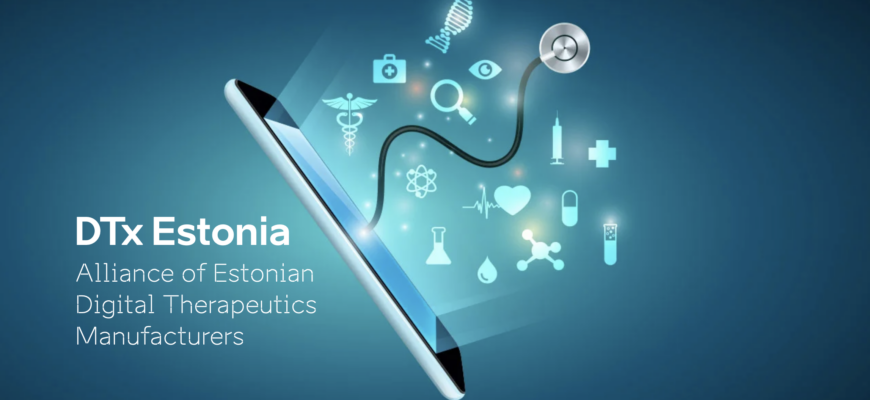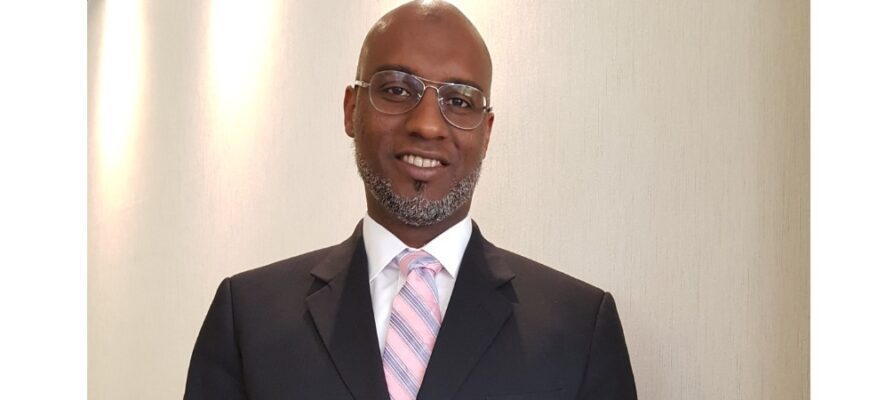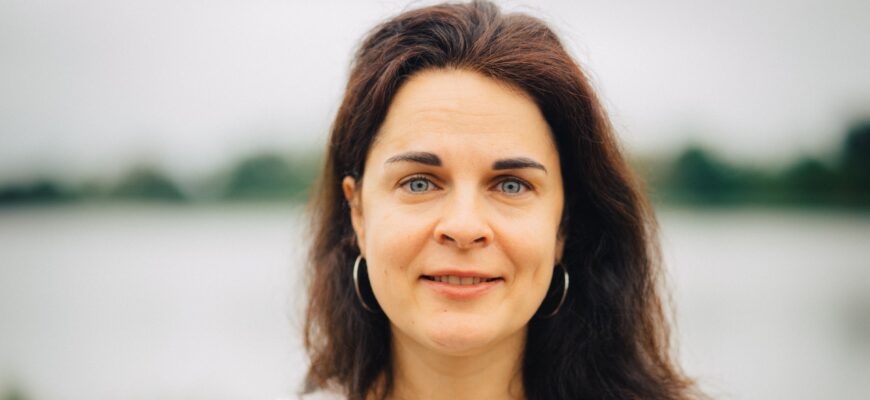- 07/07/2023
- by Health Founders
We sat down with Medon team, fourth company we’re excited to introduce you from Health Founders batch IV – Accelerator Program 2023!
Dive into their interview below as you hear them share their background and perspectices on their remarkable work, where they build a digital clinic that offers doctor video consultations with a vision to become the go-to service for a healthy lifestyle and access to medical services.
Meet the Medon team: Roberts Lasovskis – CEO & Co-Founder, Helvijs Henšelis – COO & Co-Founder, Andrejs Mironovs – CTO & Co-Founder, Mārtiņš Ērglis – Co-Founder and Anna Luīze Rezevska – Project Manager!
What is the problem you are solving?
Roberts: Access to healthcare. The world is getting more connected each day, yet the healthcare sector has struggled to leverage the benefits that technology brings. Around half of the world still lacks essential healthcare & we miss 4 million physicians at the same time. Medon addresses this by offering remote doctor consultations. In addition to that we are working on AI-powered efficiency tools for doctors so that they could do more in less time & the aforementioned 4 million doctor gap would be filled.
Helvijs: Nowadays people do most of their daily tasks using apps on their mobile phones, which is easy and convenient. Having a chat with your doctor shouldn’t be an exception to this. But the problem is that it is not yet really possible. We are determined to change that.
Andrejs: Doctor consultations availability.
Mārtiņš: We observe a prevailing phenomenon in Western society wherein the population is rapidly ageing, resulting in a substantial rise in healthcare demands. However, there is a concurrent decline in the number of healthcare professionals available per patient, thereby rendering medical treatment increasingly inaccessible. In light of this situation, our aim is to mitigate the strain on the healthcare system through progress of technologies.
Anna: On the one hand, we are solving the challenges associated with traditionally having to visit the doctor in-person for every health question (and these contribute to why people often do not) — our video consultation solution enables patients to receive care at a place and time that is convenient for them, saving time and money spent on commuting and reducing epidemiological risks; we provide accessibility & convenience. On a higher level, we aim to solve the problem of depressing health metrics (e.g., mortality rates from preventable and treatable causes; in our home country, these numbers are the highest in the EU) through making care more accessible.
On the other hand, we are also changing the system in favour of a scarce human resource — doctors — by offering them more flexibility, personalisation, and favourable terms than any other player we know of. Finally, in the face of increasing scarcity of doctors relative to the general population, it is crucial to make care more efficient, and digital technologies will help us to achieve that.
What inspired you to start this company and how did you get started?
Roberts: I was out for a run & listened to a podcast that discussed telehealth. That fuelled my interest and as I started to talk with others they got excited as well. It seemed such an obvious problem & yet no company had solved it effectively. Already some weeks later, we started talking with industry professionals & building the product. My previous experience was mostly product & finance related while I knew a couple of software developers, so the building part came naturally.
Helvijs: Roberts pitched the idea and it was so obvious, but at the same time brilliant that it was hard to find any reasons not to pursue the idea. We had an excellent team with all the required skills to start off. It was a no-brainer.
Andrejs: Initially I was mainly motivated by my experience of going to doctors and spending 1.5h+ for 20 minutes of productive time. We started when Roberts pitched his idea, it resonated and we realised we have enough expertise to try to make a change. Naturally our vision shaped and now it’s not only about saving patients time.
Mārtiņš: I was invited to join the team at a juncture where the initial stages of idea development had been completed, and I saw significant potential in it. Among the critical considerations that warrant attention, one paramount aspect is the overall strategy.
Anna: I got started at Medon more than a year after the company was launched, joining the founders on a mission that aligns with my own.
Why is now the right time to solve this problem?
Roberts: Technology is there to support this. The opportunity is that more than 64% of humanity has access to the internet & there is a rapid development of generative AI. This combination allows us to address both issues, namely the access to healthcare & lack of physicians.
Helvijs: Post-covid times online business meetings are accepted as a norm. The same cannot yet be said about online doctor visits, as a large part of the society is still of the opinion that visiting a doctor is something one should do in person. And that is precisely the reason why now is the right time to do Medon. So that when the society accepts that online doctor visit is a norm then Medon is already there to provide the service.
Andrejs: Covid played a huge role in making remote “new normal”. There’s a market and there’s also a lot of affordable technology.
Mārtiņš: The global population is experiencing a steady increase, accompanied by a notable extension in average lifespan. Consequently, the burden on the global healthcare system has intensified, as there is a growing population requiring medical treatment and consultations to address their healthcare needs. However, in the present era, we possess the necessary tools to establish robust connections between healthcare providers and the expanding patient base, ensuring high-quality healthcare services are efficiently delivered.
Anna: There is demand for it, we have the technology to do it, and we need to pave the way for the AI revolution in health care through digitisation.
How are you different from your competitors?
Roberts: We are doctor-centric & as we scale to new markets we have an unfair pricing advantage.
● Pricing advantage – our doctor consultations are 2 times cheaper than in most of developed markets. With the help of our more than 100 specialists, we will start offering second opinions in other markets.
● Doctor-centric – (a) up to 90% of consultation fee goes to doctors. That’s 2x improvement compared to other clinics. (b) data-driven tools for doctors with a goal to boost their efficiency.
Helvijs: We are not only an IT company, but an IT-focused healthcare institution. 90% of our employees are doctors. Thus we are not the middleman or intermediary. We are the real deal, which allows us not to be dependent on other clinics, but only our own product and its UI/UX.
Mārtiņš: Through our carefully devised pricing strategies, our objective is to enhance the accessibility of doctor consultations to the general public. Simultaneously, we have structured our fees in a manner that prioritises the equitable distribution of payments, with a significant portion allocated to the doctors’ salaries. By adopting this approach, we ensure that both the doctors and patients derive mutual benefits from the arrangement. Doctors are incentivised by a fair compensation system, while patients gain access to high-quality consultations at a more favourable cost structure.
Anna: We are the only fully digital clinic in Latvia, and are likely the most doctor-centric solution around. Our platform is easy to use and intuitive, and with Medon you get access to high-class specialists without having to wait in long queues and at a relatively affordable price.
What are some of the most exciting developments or milestones you’ve achieved so far?
Roberts:
● Already more than 100 doctors & 2,000 patients have signed up.
● Various grants of more than EUR 40k in total value. The largest was EUR 20k grant fromwinning in Open Health Labs.
● Cooperation with Latvia’s largest mental healthcare institution. They are using oursolution to talk with their patients remotely.
● & of course getting into Health Founders accelerator
Helvijs: At first it took us more than a month to land a doctor as an employee. Many were super sceptical about joining. Today we have more than 100 doctors and the number is growing organically every week. That is a confirmation that the product is good if doctors are recommending it to each other.
Mārtiņš: Within a relatively short time frame, we have successfully onboarded numerous highly skilled doctors who are delivering hundreds of exceptional consultations. Furthermore, we have forged significant collaborations with major universities in Latvia, as well as other prominent healthcare entities. These partnerships have resulted in at least three major projects that are currently underway. Through these collaborative endeavours, we are dedicated to advancing the field of healthcare and improving the quality of services provided to patients.
Anna: We have already developed and launched a fully functional solution, and numerous doctors from various specialities have joined us, enabling remote medical care. In addition, we offer patients to take a free digital heart health test to get personalised results based on the SCORE2 medical risk prediction algorithm. We are the provider of the virtual visit solution for the largest psychiatric hospital in Latvia and have recently joined the Health Founders accelerator, which will hopefully help us to take Medon abroad!
What is the recipe for a successful team?
Roberts: Similar culture & vision for where the company should be heading to.
Helvijs: Ability to always find compromises, when opinions differ, clear division of responsibilities (along with trust towards each other) and hunger for success.
Andrejs: Help each other stay motivated and feel valued. Stay open-minded, question & refine things. Also, as silly as it sounds — I think it’s very important to have fun building something together.
Mārtiņš: To build a strong team start by defining a clear vision, setting goals, and ensuring everyone understands the company’s direction. Assemble a diverse team with complementary skills from various disciplines, fostering effective communication through collaborative tools and channels. Establish mutual trust and respect, encouraging open and honest communication among team members. Provide supportive leadership that recognises achievements and promotes work-life balance.
Anna: Clear goals, complementary competencies, open communication, supportive environment, trust and respect, accountability and adaptability, continuous learning, and an effective leader. Having a mission that aligns with the team’s values also helps!
What impact do you hope to have on the healthcare industry in 5 years?
Roberts: Hundreds of thousands using our solution when accessing healthcare services.
Helvijs: Make healthcare more accessible — both in terms of shorter waiting time, no geographical boundaries and lower costs for the patients.
Andrejs: Seeking medical advice made seamless experience, from anywhere.
Mārtiņš: Our vision entails the establishment of a comprehensive system that extends beyond national boundaries to encompass regional networks, enabling patients in need to access online doctor consultations. By implementing such a system, we aim to not only enhance the availability of high-quality medical opinions for patients but also foster an increased awareness of personal health. This holistic approach ensures that individuals receive the necessary medical guidance while empowering them to take proactive measures in maintaining their well-being.
Anna: I hope that Medon will contribute to improving the health statistics of our region and beyond via a boost in prevention through convenience and efficiency.
To find out more about Medon visit: www.medon.lv/en




